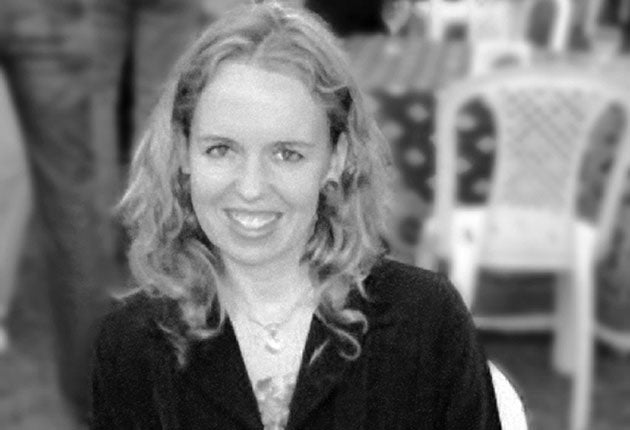British hostage killed during 'incredibly risky' Afghan rescue mission
Prime Minister pays tribute to aid-worker Linda Norgrove and defends operation by US troops that ended in her death

A rescue attempt by US special forces, described as "an incredibly risky operation" by military experts, ended tragically with the death of British hostage Linda Norgrove, it emerged last night.
Following a tip-off that gave the location where she was being held, a team of American soldiers was sent in to rescue her. During fighting on Friday night, Ms Norgrove, 36, from Scotland, was killed. It is understood that five insurgents were shot dead. A sixth is understood to have triggered an explosion that killed him and the aid worker.
Every effort had been made to carry out a safe rescue of the British aid worker, who was killed "at the hands of her captors", Foreign Secretary William Hague said yesterday. "We received information about where Linda was being held and we decided that, given the danger she was facing, her best chance of safe release was to act on that information." Mr Hague blamed the kidnappers for her death. "Responsibility for this tragic outcome rests squarely with the hostage-takers," he said.
Full details of the rescue mission have yet to emerge, but last night the Foreign Office was quick to dispel any speculation that she might have been mistakenly shot dead by her rescuers.
In a statement issued by 10 Downing Street, David Cameron said: "My thoughts are with Linda's family, who will be devastated by this tragic news. She was doing valuable work for the Afghan people." Praising the "courage and skill of all those involved in this effort", he defended the decision to undertake a rescue mission. "Decisions on operations to free hostages are always difficult. But where a British life is in such danger, and where we and our allies can act, I believe it is right to try."
Ms Norgrove had been "a courageous person with a passion to improve the lives of Afghan people," said General David Petraeus, commander of the International Security Assistance Force in Afghanistan, yesterday. He added: "Afghan and coalition security forces did everything in their power to rescue Linda."
News of her death devastated the tiny community of Uig, on the Isle of Lewis in the Outer Hebrides, where her parents John, 60, and Lorna, 62, live. They were too upset to comment last night, as was her younger sister.
Ms Norgrove, who had a PhD in development policy and management, joined Development Alternatives Inc (DAI) in February. Based in Jalalabad, she worked as a regional director on projects to build roads, bridges and markets, repair irrigation systems and install hydro-electric systems in villages. And in what her family has described as a "measure of Linda's love for Afghanistan and its people", last year she chose to spend three weeks' holiday trekking through the Pamir mountain range, in the extreme north-east of the country, between Pakistan and Tajikistan.
The aid-worker was kidnapped, along with three Afghan colleagues – who were later released – by Taliban fighters two weeks ago. They had been driving from Asadabad to Jalalabad for the opening of a 15-mile canal to provide irrigation for thousands of farming families.
Responding to the news of Ms Norgrove's death, James Boomgard, the chief of executive of DAI, called her a "wonderful woman" and an "inspiration". Scotland's First Minister, Alex Salmond, said: "Ms Norgrove was a dedicated aid worker who was doing everything she could to help people in Afghanistan."
It is not the first time that a rescue attempt by coalition forces has ended in tragedy. Last year, three people died during an operation led by British special forces to rescue kidnapped journalist Steve Farrell of The New York Times. Sultan Munadi, his Afghan assistant, was killed in the crossfire, as was Corporal John Harrison, a paratrooper. A woman and child also died.
Commenting on the risks of a hostage rescue, former SAS commander Clive Fairweather said: "You can't guarantee, in those last few minutes in all the mêlée that's going on, that she's not either shot by the terrorists or indeed your own side."
Criticism emerged last night as SAS veteran Bob Shepherd, who has experience working in private security in Afghanistan and Iraq, suggested the British Government might share a degree of responsibility over Ms Norgrove's death. "For an international NGO to be wandering around Kunar province is just totally ludicrous," he said. "Politicians need to be honest about the true levels of danger in Afghanistan. I would absolutely go so far as to say that the British Government, the Foreign Office, is complicit in this along with the Americans: they have blood on their hands."
A Foreign Office spokesperson said: "Our travel advice makes it extremely clear that Afghanistan is a very dangerous place and we reiterated that advice when Linda was kidnapped two weeks ago. We have repeatedly made it clear that there are some very serious dangers, and people need to be fully apprised of them."
The Ministry of Defence named the British soldier killed on Friday by a bomb in Helmand as Sgt Peter Rayner, 34, of the 2nd Battalion, the Duke of Lancaster's Regiment.
Join our commenting forum
Join thought-provoking conversations, follow other Independent readers and see their replies
Comments
Bookmark popover
Removed from bookmarks